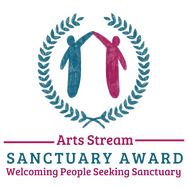During my years living in the village, the city’s arrogance was blown away from me like dust. I slipped deep into rural life, took its ways as my own, and felt very comfortable. I’m already a bit more than 14, and I’m growing up faster as a person now than in past years. If until now my Mum could hug me, and stroke my head (which I allowed only at home), now I shunned these manifestations of maternal tenderness. If only I had known that in years to come I would miss these things, or that I’d be the cause of her worrying and sleepless nights. But my Mum couldn’t help showing her feelings for me. Sometimes, when I was asleep, she would come up quietly, sit on the floor and stroke my head, combing my hair back with her hands, roughened from hard work, but still warm and gentle. Softly, softly, she would say that I was her hope, and that she loved me so much. Her touch woke me, but I didn’t let her see. That required more effort.
As a child, my very favourite and most longed-for weather was rain, preferably in the morning. Because you’re free all day, you don’t need to go to work in the field with a hoe, or pick apples. On one such day my neighbour and classmate, Hussein, came and suggested we go fishing. Uncle Zelimkhan had brought some new furniture and Aslan and I were meant to assemble it. But we wanted to go fishing more, so Hussein and I took a homemade rod, with a fishing line and a float tied to it, and off we went.
I put on my favourite rubber boots. We were going to fish in the small Goitinka river, which ran through the village. We came to a low cliff, along which a path led down. I went to the very edge, and thought it would be great to jump down. After all, I would land at the bottom before Hussein had reached on foot. But I rejected this thought as it seemed too high. I sighed and started to come down after my friend, and then looked up at the edge of the cliff from the bottom. It didn’t seem very high. So, I stopped and threw my fishing rod down and, as if driven by some unknown force, I ran back up. I picked up speed and jumped from the 4 or 5 metres tall cliff. I miscalculated, and landed on the stones. The result was a broken ankle, a double closed fracture. My rubber boots saved me from a much more serious injury that could have left me disabled for life. An open fracture could have torn all the ligaments and bent my leg under my full weight. I shouted and wouldn’t let anyone cut my boot. They cut it anyway and then rushed me to the hospital, where I lay for almost two months.
I regretted it, and I was ashamed before my sisters and my Mum as I felt I had let them down. After all, the family had lost a pair of working hands, even if they weren’t the most valuable. My relatives came to visit me almost every day. On every visit my Mum asked what to bring next time. I read almost all our neighbours’ books. My Mum was going to the market in Urus-Martan, and I asked her to buy me a book. I didn’t think that with her three-year education she’d be able to find something. But in the evening, she returned with groceries and the book The Story of a Real Person. Dissatisfied, I told her that it was on our school curriculum. She smiled and said that she didn’t know what to choose, but had selected it because of the title.
‘I want you to become a real person,’ she said guiltily.


